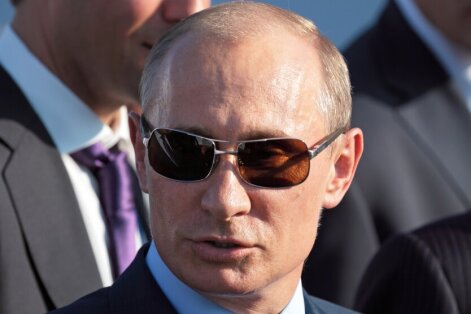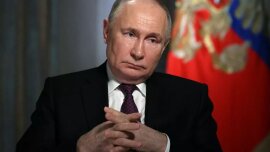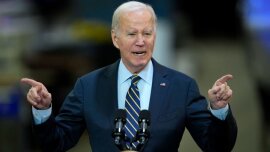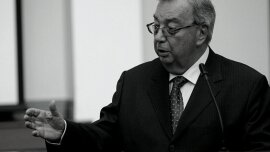Russia and Ukraine may find themselves on the verge of a major war, which in the worst case could reach an unprecedented scale for post-war Europe. The two territorially largest European states are military heavyweights.
The conventional armed forces of Russia, of course, are significantly superior to the armed forces of Ukraine, both quantitatively and qualitatively. Moreover, Russia is a nuclear superpower, while Ukraine is a non-nuclear state banned from acquiring nuclear warheads under the Treaty on the Non-Proliferation of Nuclear Weapons (NPT).
However, over the past seven years, Ukraine has built up a powerful army, battle-hardened. Ukrainian troops are now partially equipped with modern high-tech weapons, both Ukrainian and foreign. In the event of an escalation, they will be supported by Western weapons and intelligence. Given these factors, it is unclear whether Russia will be able to achieve a clear victory as easily and quickly as it did in the five-day Russian-Georgian war in August 2008.
Moreover, it is not known how the Western and Russian publics will react to such a war. Past experience suggests that neither the negative reaction of foreign states, nor the pacifist attitude of ordinary Russians can be seen as constraining factors. Russia’s brutal occupation of a fifth of Georgia’s territory in 2008 and the official annexation of Crimea in 2014 were popular among Russians. It has increased support for the Putin regime and increased anti-Western sentiment.
Worse, the West's response to Russia's southern expansion has been muted. In 2008, not a single noteworthy sanction was imposed against Moscow. On the contrary, after the war and the occupation of Georgia, relations between Russia and the West improved. In 2014, the overt annexation of Crimea and the covert Russian intervention in Donbas were initially punished with minor sanctions. Its limited effect pushed the Kremlin to escalate further.
Moderately significant sectoral EU sanctions were imposed on Moscow in the summer of 2014. However, they were clearly a reaction to the killing by Russia of more than 200 EU citizens on Malaysian Airlines flight MH17, which was shot down by a Russian regular army unit over eastern Ukraine on July 17, 2014. This could lead Putin and Co. to believe that Russian territorial expansion is not a big problem for the West. The Kremlin only needs to avoid the massacre of EU citizens.
What can Ukraine do taking into consideration the daunting lessons that Moscow may have learned from its 2008 and 2014 adventures? A key variable determining both Moscow's past and possible future behavior is the relative cost of military escalation and the public's assessment of these costs in Russia. Material and human losses from the adventures of Moscow in 2008 and 2014 looked then and still look today as acceptable for many Russians.
As for the Georgian operation in Moscow in 2008, the losses were objectively low. As for the Russian attack on Ukraine, its relative total cost was perceived by Russian society as bearable. The fallout from the 2014 national triumph of Putin's swift takeover of the Crimean peninsula is still felt today. With the annexation of Crimea, many Russians continue to put up with the ongoing socioeconomic stagnation in Russia, which resulted, among other factors, from the 2014 Western sanctions regime.
Thus, the behavior of the Kremlin in 2008 and 2014 was in a sense rational. Expansionary aggression increased public support for the Putin regime and diminished Western support. At the same time, the political and financial costs for the Putin regime were limited.
One can only assume that both of these consequences were foreseen in Moscow in 2008 and 2014. Large and immediate domestic political gains, on the one hand, and minor or muted foreign economic losses, on the other, were desired and expected by those who made decisions in the Kremlin. From their point of view, it would be a sin of omission not to take advantage of the fortunate opportunities that opened up in Georgia in August 2008 and in Ukraine in February 2014.
Conclusions from the past for the behavior of Ukraine and the West in the current situation have three dimensions.
First, the government and society of Ukraine must carefully avoid a situation that could be presented by the Kremlin to the outside world and the Russian population as a semi-legitimate casus belli and / or which could give Moscow the impression of a political crisis in Ukraine. Kyiv needs to avoid internal feuds, which the Kremlin may be able to deftly exploit.
Second, the Ukrainian state and nation must make it clear to Moscow that they are ready and united to fight from beginning to end. The Kremlin should be under the impression that a new Russian invasion, unlike Crimea in 2014, will generate immediate and determined military resistance from Ukraine, and that there will be no hasty promises of a ceasefire on any terms, as in Georgia in 2008.
Third, the West must inform through public and non-public channels of its readiness to impose sanctions, which will be more than symbolic. In particular, the EU must find a way to publicly decide and make it clear that it will no longer wait for the massacre of EU citizens by Russia before large sectoral sanctions are imposed. It will not be easy to achieve such a common solution among all 27 member countries.
Leading EU officials should do their utmost to ensure such unity, with the support of interested Member States. Tough Great Britain is no longer a member of the EU, and Poland, as the most active defender of Ukraine's interests in the EU, is hindered by a domestic conflict with Brussels. Therefore, other member states of the Union will need to take the lead in developing and promoting sanctions.
While the situation looks grim, not all is lost. The fundamental difference between the current tension and the one that existed before Moscow's attack on Georgia in 2008 and on Ukraine in 2014 is that the socio-economic prospects for Russia today are bleak. The Russian people, in principle, do not want a war with Ukraine. Russians may be less inclined to foreign adventures than in times of relative economic success. If Russia and the West remain calm and show sufficient determination, another major war can be avoided.
Andreas Umland is an analyst at the Stockholm Center for Eastern European Studies at the Swedish Institute of International Relations.

























